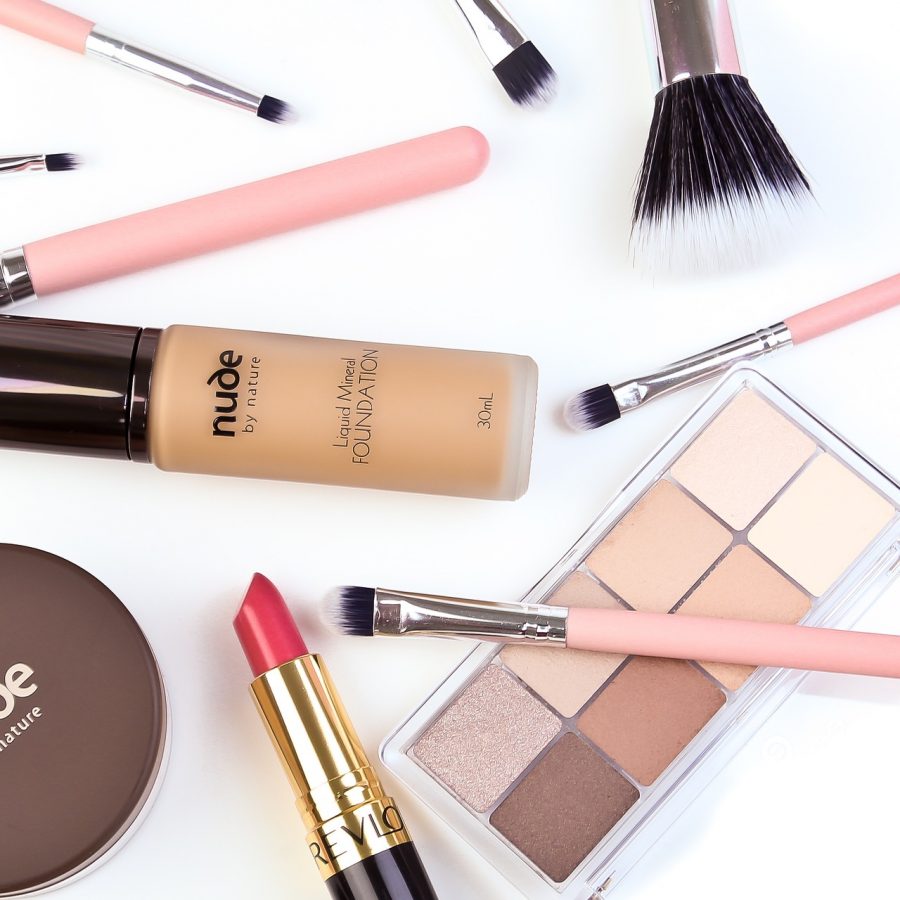Concealing our imperfections
Deconstructing the impact of body makeup on self-esteem and society’s chase for “perfection”
October 20, 2019
Sunless tanning has been present in American society since the early 1920s when renowned French fashion designer Coco Chanel returned to America from a trip to Cannes with tan skin and began the trend. However, foundation used on body parts such as arms, legs and shoulders has become more widespread among the general population in just the past decade. According to beauty and entertainment writer Lauren Hubbard, just two to three years ago searching up “body makeup how-to videos” would lead you to tutorials for body paint and Halloween ideas.
Body makeup is used for various reasons: covering up acne scars on shoulders, according to senior Ella Smith; defining muscles in body building competitions, according to English teacher Vennessa Nava; or making one’s skin tone appear a shade lighter or darker, according to senior Anjana Parasuram. However, with the rise of the skin positivity movement in the past few years, a fundamental question arises: why do people alter their skin and what impact does doing so have on them?
English teacher Vennessa Nava breaks it down to society’s rudimentary way of deeming someone attractive and explains how being more attractive seems to have benefits for people in society, pushing people to aspire to gain those benefits.
According to a study by professor Daniel Hamermesh at the University of Texas at Austin, someone considered attractive is likely to earn 3-4% more money in their career than someone who is not considered attractive. What people perceive as attractive, according to senior Ella Smith, has been made the “standard of beautiful” by the media. The media consistently represents people who meet this standard, which is why it has persisted in society for such a long time. This standard can be defined as someone who has a tall and lean body and has clear skin. She explains how the reason why this standard has remained so prevalent in people’s perception of beauty is that people have been influenced by it and therefore “try to replicate” it.
Parasuram is also the co-founder of a beauty consultation company called Pigmenote, in which she aims to bring the idea of color inclusivity to people who do not have makeup products in their skin tones available at affordable prices. Due to pressures from the way people are represented commercially and in the media and pressures from her family, Parasuram explains she often took part in skin-lightening practices like bleaching her skin or wearing a shade of body foundation that was lighter than her natural skin tone when she participated in the Indian classical dance, Bharatnatyam.
Nava has had to deal with a number of difficulties with her skin and has noticed the negative impact it has had on her and others’ perception of their skin, urging them to cover up their imperfections to avoid standing out. One of her struggles has been eczema, which according to Medical News Today, is “a condition where patches of skin become inflamed, itchy, red, cracked and rough.”
“I know how frustrating and unsightly [eczema] can be and it itches, and you’re embarrassed and you want to cover up,” Nava said. “I’ve seen students who have severe eczema or skin conditions and I’ve seen the way that they try to cover themselves up with using hoods. Their self-esteem is really eroded by medical conditions like that, and so I think that especially for younger people, trying to not stand out might be [a] motivating [factor] that can cause some people to want to use these types of things.”
While society may get the message that “the only type of skin that’s okay is perfect, flawless skin that doesn’t have any discoloration” due to its constant portrayal in the media, Smith says she believes having body foundation products available could be seen as positive by some people with scarring or some type of discoloration because they feel more confident when wearing it.
However, in the long run, Nava believes reliance on concealment products could be harmful and that while it may be difficult to overcome, it is better for an individual to deal with their imperfections rather than constantly cover them up.
“I think that fixating on concealment could become a dangerous thing,” Nava said “[Having moles] was a thing for me growing up [and] I had to accept that this is my skin, [which] was a big psychological process for me because I did want to conceal … I think learning to accept the things that we [may] have less power to change is healthy for us, instead of thinking that we can just change everything or search for cures for immortality or mortality. There’s something that is shameful about that to some extent.”
Someone’s confidence in their own skin depends on the standard of normal they are comparing themselves to, according to Parasuram, and how they decide to use concealment products or not should be for themselves.
Nava believes that having imperfections on one’s skin can even give an individual more depth and refers to a quote — “Scars are a reminder that our past is real” — she came across in her past. She also acknowledges how having conventionally perfect skin may be an aspect of a person that may have less character since there is not a societal imperfection associated with that part of their life.


















